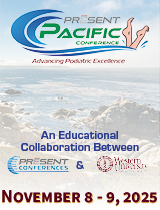The different opinions on board certification,
residency programs, should-a, would-a, could-a
ideas have been interesting reading. Many of
them I agree with to some extent, and some I
disagree with— but all of them are interesting
and worthy of consideration and debate by our
representatives to the powers who make changes.
I am no podiatric politician, and that is what
this feels like to me—politics. I personally
chose 3 years post-grad training way back in the
1980s because I got lucky and landed a 2-year
residency and was blessed by getting offered a
fellowship by someone who had a vision to
improve our education (Larry Oloff, DPM). There
was no political influence in it—It was real
simple –IMPROVE OUR EDUCATION SO THAT WE CAN DO
A BETTER JOB.
In 1986, the residency program (CCPM) was easily
comparable to the internship and residency that
my sister (MD) went through. It was fairly
diverse training. The real world reality is that
the more time spent in training (and hopefully
the more knowledge we gain) the easier it is to
compete in the real world for the foot (our
territory) with the orthopedic foot specialist,
the dermatologist, the neurologist, the
rheumatologist, the primary care doc, the nurse
practitioner, the local nail salon, and the
others that do our job (none of which do it as
completely and as well rounded as we do).
My philosophy is fairly simple — keep your nose
to the grindwheel, suit up and show up, do
better than anyone else with the patient's foot
that you are treating, always remembering that
there is a patient attached—and eventually
efforts will be recognized by everyone
(physicians and the public) for your actions,
not words and not even for your training.
>p>
Podiatry in its current form is relatively new.
Our training has changed dramatically over the
last 40 years for the better (and continues to
change for the better regardless of which
direction one may believe it should go). People
generally have pre-conceived ideas about what we
do, especially down here in Mississippi where I
practice. The podiatry practice act that I began
working under was written in 1936. Those pre-
conceived ideas are not based on our current
training, but on our history.
We are babies in the world of medicine. We
should learn to walk before we try to run. By
that I do not mean to imply that we should stop
trying to run, but that we can expect to fall
and stumble along the way. Occasionally we will
trip over our own two feet as we do when we have
conflict within our own profession.
It is obvious that we need to consolidate ideas
and goals. We need exceptional leadership that
can do that. Where are our leaders? I have no
idea who the podiatrists are that are on the
committees that make the decisions about
residency issues, board certification, and the
more lofty issues that I read about on this
forum. Perhaps someone will provide us all with
their email addresses so that we can put in our
2 cents worth, but I sure hope that they read
this forum daily.
It would be great to see some of the people who
write on this forum as leaders, not politicians,
but leaders. In a simple world, perhaps we could
agree to do something very simple and time
tested---let the majority rule and put these
issues to a vote for all podiatrists to vote on—
third year residents, older practitioners, APMA
members, non-APMA members. If you don’t vote
than you have no say and you have no right to
complain (although we all know that will not
happen).
Tip Sullivan, DPM, Jackson, MS,
tsdefeet@MSfootcenter.net
I must correct Dr. Markinson's historical take
on the profession and the ABPS's role. In the
early 1990s, ABPS did go to hospital's and
promote their credential. This was a time when
hospitals did not allow podiatrists to become
members of the active medical staff. They never
said they were the only credential just that
they were a credential in podiatry.
This was shown when the ABPS finally won a
lawsuit that was brought by a competing board.
The other boards can and do promote their
credential to insurance companies and hospitals
as they should. The ABPS never went to any
hospital and said "we are the only board" in
podiatry!
This is just one part of the story. The other
being the weak training model that was proposed
for the RPR and PPMR podiatry programs. These
programs were just the poor cousins of the
surgical programs. It is remarkable to me that
it was the surgical board (ABPS) that was
pushing for a strong medical program model by
the end of the 1990's but were drowned out by
the "grassroots".
In any of the hospitals that I have played a
role in credentialing, any board qualified or
certified podiatrist may gain acceptance to the
medical staff from either board, but to gain
entry to the operating room, one must show
training for the procedures requested.
Besides that, most of the the skills that Dr.
Markinson writes about do not require hospital
or surgical center membership. This is not
elitist in any way, and only helps serve the
public. There is not enough resources in most
hospitals to train residents in biomechanics,
orthotics, prosthetics, dermatology, and the
other areas of podiatric medicine that is needed
to fore-fill the void that is presently being
supplied by other professions.
Three years, I believe, is too short a time to
develop a well-rounded surgeon of the foot and
ankle never mind everything else this profession
needs.
Charles M Lombardi, DPM, Flushing, NY,
chazdpm@aol.com







